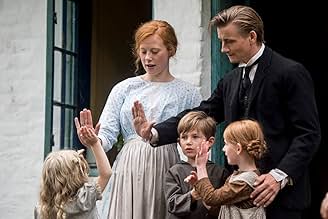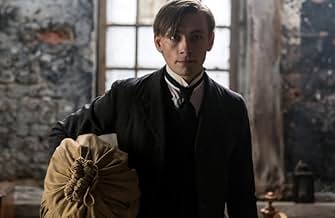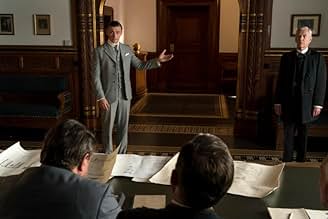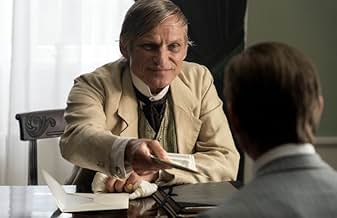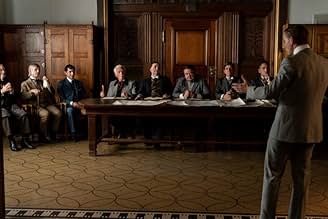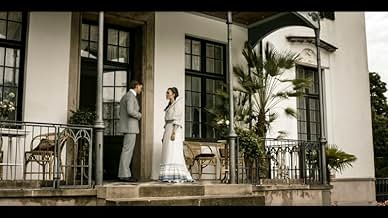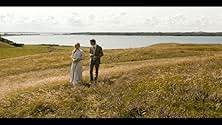IMDb-BEWERTUNG
7,2/10
8067
IHRE BEWERTUNG
Ein begabter Ingenieur flieht vor seinen strengen Wurzeln, um in der Kopenhagener Elite nach Reichtum und Erfolg zu streben, aber der Stolz, der ihn antreibt, droht sein Ruin zu werden.Ein begabter Ingenieur flieht vor seinen strengen Wurzeln, um in der Kopenhagener Elite nach Reichtum und Erfolg zu streben, aber der Stolz, der ihn antreibt, droht sein Ruin zu werden.Ein begabter Ingenieur flieht vor seinen strengen Wurzeln, um in der Kopenhagener Elite nach Reichtum und Erfolg zu streben, aber der Stolz, der ihn antreibt, droht sein Ruin zu werden.
- Regie
- Drehbuch
- Hauptbesetzung
- Auszeichnungen
- 5 Gewinne & 13 Nominierungen insgesamt
Sara Viktoria Bjerregaard
- Inger
- (as Sara Viktoria Bjerregaard Christensen)
Empfohlene Bewertungen
This movie is Long, and it feels Long. But it uses that, it takes it's time and establishes wellwritten and charismatic characters that you emotionally engage in.
It has aome beautiful set design and costumes are on point. The actors do a very good job, including the lead who has a striking ressemblence to Martin Freeman.
Overall a wellrounded and satisfying film, good to watch with a group of people where you can discuss the plot as the movie Rolls along.
It has aome beautiful set design and costumes are on point. The actors do a very good job, including the lead who has a striking ressemblence to Martin Freeman.
Overall a wellrounded and satisfying film, good to watch with a group of people where you can discuss the plot as the movie Rolls along.
Many people think you have to be danish to enjoy this film. Actually, I am not. I´m Argentinian and I've found this film really disturbing. I watched it in the native language, of course. This is -in my opinion- how films should be watched. The film makes you feel uncomfortable, you have mixed feelings about the main character: you love him, hate him, understand him, all in a turmoil of feelings, as the film develops. In the end, everything has to do with love, and growth and the reason why we are here on earth.
10alrodbel
Often a prosaic formulaic film can be a financial success based on casting and marketing decisions that provide anticipation of the release. Having viewed this just by chance last night on Netflix (not dubbed, as commenters have criticized) the film combined a rare and intriguing immersion of a different time and place.
Few films are made from Nobel Literature Prize winning novels, as this described by the prize winner Henrik Pontoppidan in 1917. "But the subjects which especially attracted me demanded a more spacious form and a broader style. I turned to the novel, an artistic form which had in former days been neglected and had thus acquired a bad reputation, but which during the nineteenth century had developed and elevated itself to the ranks occupied by drama and the ancient epic. In a trilogy, including Lykke Per written over a decade period, I have attempted to give a continuous picture of the Denmark of today through descriptions of human minds and human fates which reflect the social, religious, and political struggles of the time.
Rather than being unduly slow moving, this film conveyed the life of several strong willed characters along with an accurate depiction of two cultures of the era - fundamentalist Christianity and Secular Judaism. The three hours of the film could only define the contours of the radical Christianity, while dramatizing the cultural-financial-humanistic world of this class of Jews, that also illustrates this same group in neighboring Germany.
The film brilliantly depicted the era on two levels, a brilliant man who bristled under this form of Christianity; and his lover who was part of the vanguard of enlightened humanist sensibilities, soon to be destroy by the disaster of the Third Reich.
The acclaim by other commenters who saw the Danish language version, indicates this film should have been an artistic and financial success. As produced, it is a rare gem, that fulfills the original writers goal of capturing a time of transition in Denmark, and of Europe
Few films are made from Nobel Literature Prize winning novels, as this described by the prize winner Henrik Pontoppidan in 1917. "But the subjects which especially attracted me demanded a more spacious form and a broader style. I turned to the novel, an artistic form which had in former days been neglected and had thus acquired a bad reputation, but which during the nineteenth century had developed and elevated itself to the ranks occupied by drama and the ancient epic. In a trilogy, including Lykke Per written over a decade period, I have attempted to give a continuous picture of the Denmark of today through descriptions of human minds and human fates which reflect the social, religious, and political struggles of the time.
Rather than being unduly slow moving, this film conveyed the life of several strong willed characters along with an accurate depiction of two cultures of the era - fundamentalist Christianity and Secular Judaism. The three hours of the film could only define the contours of the radical Christianity, while dramatizing the cultural-financial-humanistic world of this class of Jews, that also illustrates this same group in neighboring Germany.
The film brilliantly depicted the era on two levels, a brilliant man who bristled under this form of Christianity; and his lover who was part of the vanguard of enlightened humanist sensibilities, soon to be destroy by the disaster of the Third Reich.
The acclaim by other commenters who saw the Danish language version, indicates this film should have been an artistic and financial success. As produced, it is a rare gem, that fulfills the original writers goal of capturing a time of transition in Denmark, and of Europe
Lykke-Per/ A fortunate man tells the story of a man who tries to create his own legacy, during a time of economical and social turmoil (Denmark at the end of the 19th century).
I found this movie to be very balanced, emphasizing as much on the man's own issues than on the country's evolution during that era - it depicts in a suble way what every Man shall encounter eventually : the desire to free oneself from one's past, the need to forgive, loneliness and finiteness.
I found this movie to be very balanced, emphasizing as much on the man's own issues than on the country's evolution during that era - it depicts in a suble way what every Man shall encounter eventually : the desire to free oneself from one's past, the need to forgive, loneliness and finiteness.
If you choose to watch a foreign language film dubbed into your language, you are not watching the work as created by the actors and director. If you are too ignorant to read subtitles you have no right to review.
Wusstest du schon
- WissenswertesThe Danish author of 'Lykke-Per', Henrik Pontoppidan, was awarded the Nobel Prize in literature 1917.
- VerbindungenEdited into Lykke-Per (2018)
Top-Auswahl
Melde dich zum Bewerten an und greife auf die Watchlist für personalisierte Empfehlungen zu.
- How long is A Fortunate Man?Powered by Alexa
Details
Box Office
- Budget
- 55.000.000 DKK (geschätzt)
- Laufzeit2 Stunden 42 Minuten
- Farbe
- Seitenverhältnis
- 1.85 : 1
Zu dieser Seite beitragen
Bearbeitung vorschlagen oder fehlenden Inhalt hinzufügen


